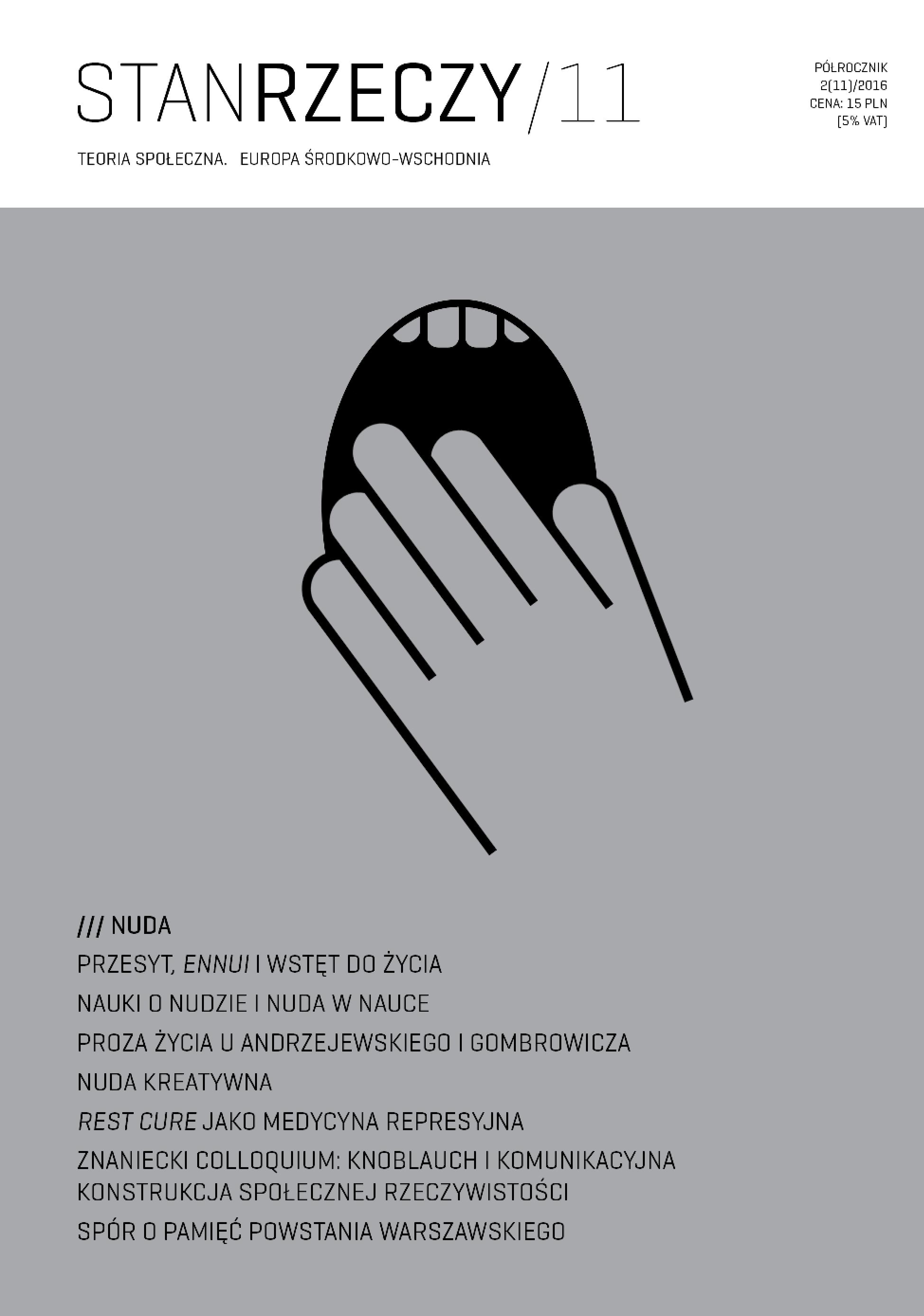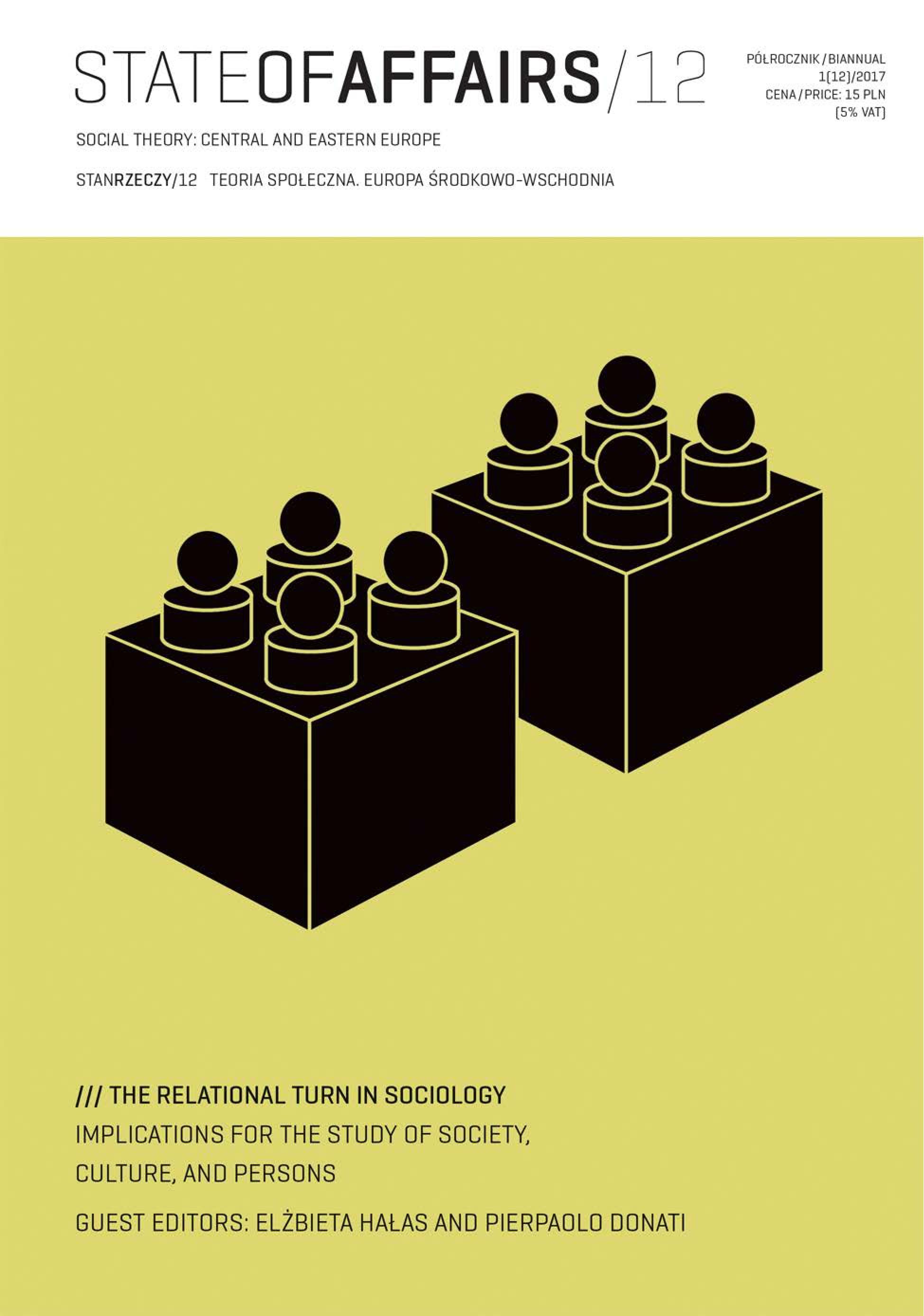
We kindly inform you that, as long as the subject affiliation of our 300.000+ articles is in progress, you might get unsufficient or no results on your third level or second level search. In this case, please broaden your search criteria.














The paper presents a general outline of the author’s relational sociology,showing it to be different from other relational sociologies, which are,in fact, figurational, transactional, or purely communicative. Relational sociologyis conceived as a way of observing and thinking that starts from the assumption that the problems of society are generated by social relationsand aims to understand, and if possible, solve them, not purely on the basisof individual or voluntary actions, nor conversely, purely through collectiveor structural ones, but via new configurations of social relations. Thesocial is relational in essence. Social facts can be understood and explainedby assuming that “in the beginning (of any social fact there) is the relation.”Ultimately, this approach points to the possibility of highlighting thoserelational processes that can better realize the humanity of social agentsand give them, as relational subjects, the opportunity to achieve a goodlife in a society that is becoming increasingly complex as the processes of globalization proceed.
More...
This article is an analysis of three original variants of relational sociology. Jan A. Fuhse’s conception, which is part of the tradition of social network research, situates network analyses in the context of connections between culture and symbolic forms and styles. Fuhse’s idea involves a communicative base of relations, and he perceives institutions as spheres of communication that reduce uncertainty and activate roles in the process of communication. François Dépelteau’s approach, which is inspired by Dewey’s pragmatism, recognizes transaction fields as configurations of relations forming interdependency between people. The practices of actors entering transactions within social fields are important, and this makes it possible for an impression of continuity, order, and complexity to be created. Pierpaolo Donati’s relational realism is an attempt to describe the relational dimensions of human actions, while at the same time it is a consistent “relationization” of key social categories, and is also useful in understanding after-modernity. This article emphasizes the fruitfulness of new attempts to demarcate sociological genealogies and to read the classics of relational sociology. The author discusses the creation of new puzzles for sociological theory, the necessity of analysing the ontologies of social life, the phenomena of emergency and agency, and the use of relational theory in regard to categories of the common good and social capital. He encourages multidimensional and multilevel analyses of social reality.
More...
This paper discusses the philosophical background and socio-theoretical affinities of Pierpaolo Donati’s relational sociology, focusing particularly on language as a missing element in relational social ontology. Following a discussion of Norbert Elias’s and Charles Wright Mills’s ideas of modernity as a counterpart to Donati’s theorizing, the paper criticizes the concept of relational society and the limitations to its applicability. The author argues that the communicational aspect of social relations calls for linguistic normativity as the basis of all normativity in a society that Margaret Archer and Donati call “morphogenic.”
More...
Margaret S. Archer and Pierpaolo Donati have independently developed relational approaches in the social sciences. Combining morphogenetic theory and the relational theory of society opens up new research perspectives. This article attempts to investigate relational conceptions of culture by answering two questions: one related to the nature of culture and the other to the place of culture in relational sociology. Assuming the complementarity of the theories of both sociologists, the possibility that their conceptions may be inconsistent or even contradict each other is not discounted. The article discusses the issue of symbolization and the presence of processes of semiosis within relational sociology. It is argued that apart from the Cultural System and the Socio-Cultural interaction assumed by Archer’s analytical dualism, a more general category of Cultural Reality can be introduced. This theme is further discussed in the light of Donati’s views on human reality; he postulates including the relational frame of symbolization. Analysis shows that culture occupies a central place in relational sociology. This article exposes the complexity of the nature of culture in human reality.
More...
This essay deals with reflexivity and socialization processes in late modernity. First, it is argued that within the societal frame of “unbound morphogenesis” socialization theory is most adequately articulated into a realist-morphogenetic approach, which conceives of socialization as a reflexive, concern-oriented, relational process. However, the so-called morphogenic society involves profound cultural change, impinging upon the idea of the self and its fundamental need to “shape a life.” When such changes are integrated within socialization theory, it becomes clear that different identity-building processes co-exist, including ones that would bring about deep transformations of human reflexivity and challenge its “regular” operation. A brief outline of such a challenge is provided, along the dimensions of personal ontology, time, and sociality. Finally, the need is indicated to develop Archer’s model further, and some provisional conclusions are drawn concerning the possible developmental paths of human personhood depending on these dynamic factors.
More...
This essay considers the features constituting the symbolic We-relation to seek how the reflexive Self can generate changes to the Self, the You, and the We-relation itself. While critically dialoguing with phenomenological and pragmatist social theories, the essay investigates how subjectivity emerges in the interaction with (verbal and non-verbal) symbols and tries to avoid both subjectivism and the relationism.
More...